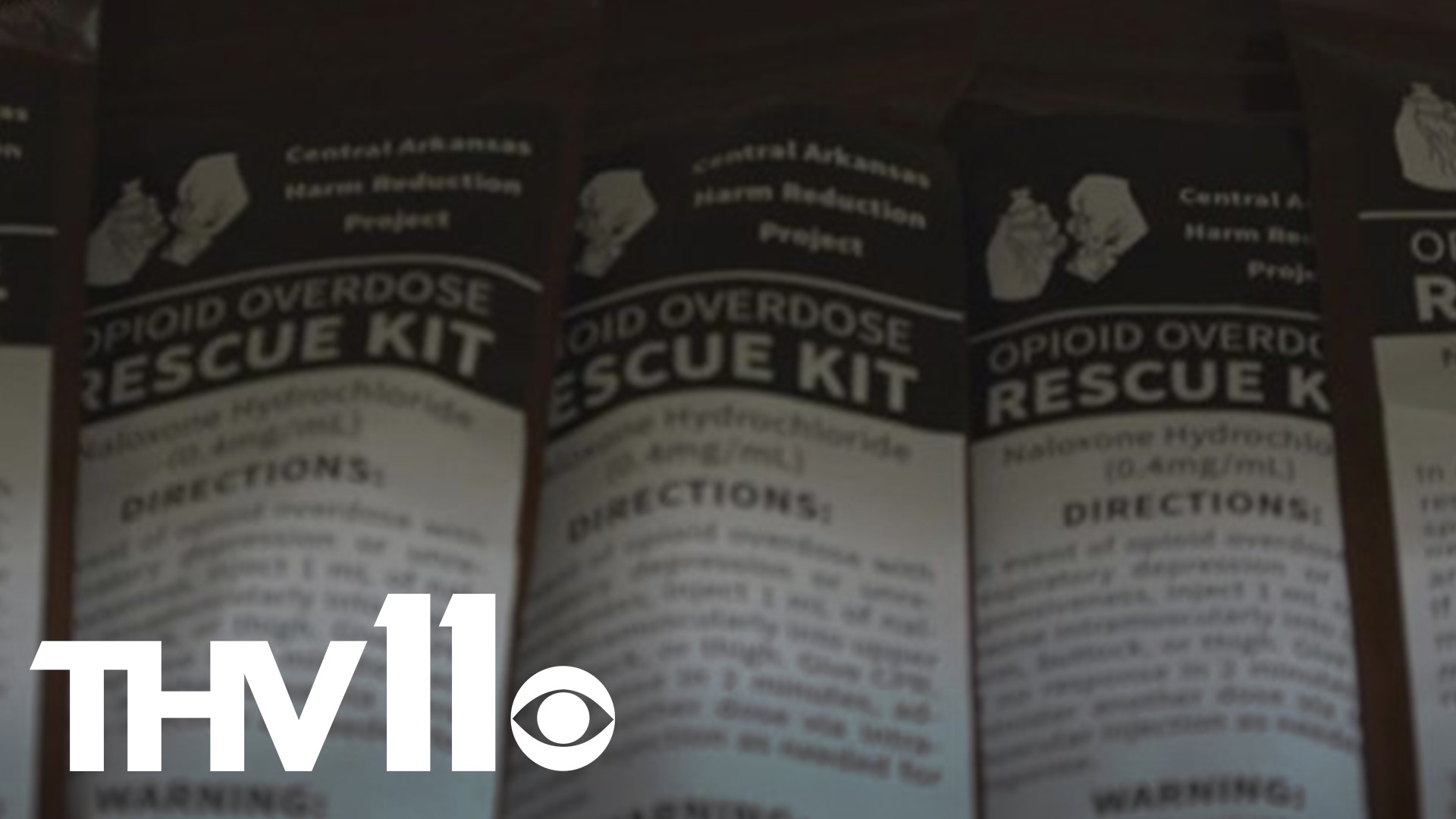LITTLE ROCK, Ark. — Helping save lives as opioid use and addiction hit an alarming rate in Arkansas and across the country.
The CDC has declared this an epidemic and The Central Arkansas Harm Reduction Project, a local grassroots group, is working to lower the number of deaths from substance abuse.
The Central Arkansas Harm Reduction Project sums it up in their motto: "You can't go to recovery if you're dead." A stark, but powerful message.
Just last year, hundreds of Arkansans died from substance abuse according to the CDC. Now, this group is helping by providing resources and meeting drug users where they are in their journey.
"We're trying to save lives so that people can keep on fighting and hopefully get into recovery and win that battle with addiction," Arya Mac-Gilson with The Central Arkansas Harm Reduction Project said.
That battle is widespread in the Natural State.
"In Arkansas, people are actually dying at a higher rate than the national average, so this is a problem that is especially applicable to the entire state," Mac-Gilson said.
Arya Mac-Gilson and Eric Reece said a step in fixing the opioid crisis in the state is awareness. Awareness that opioid abuse is happening across the Arkansas, not isolated to just rural areas or the metro.
Another key step in this battle, providing the right resources to those in need, like life-saving naloxone kits.
"If we can just get the naloxone and other resources in people’s hands that are using, that’s another life that we saved that can continue going towards their own recovery,” Eric Reece with The Central Arkansas Harm Reduction Project said.
Mac-Gilson and Reece understand the effects of addiction all too well. Mac-Gilson just reached his one year of sobriety.
"This work is specifically important to me as a recovering addict, I look at every single one of our clienteles and I see myself and I know I could be one of the 750,000 people dead in the last 20 years," Mac-Gilson said.
Reece lost his father to opioids.
"Substance abuse occurred in my family so here I am having to bury my father and that's not right,” Reece said. “So, that's one of the reasons I started working with this project.”
They said the change they're working towards is directly related to their dispensing of Naloxone Kits, which help block the effects of an overdose.
Mac-Gilson runs a hotline where people can call to receive the kits and he will deliver them personally.
Last year, the nearly 700 kits the group handed out helped save that many lives. This year, they're already nearing last year's total.
So how do the kits work?
"Inside you'll find two sterile syringes, instructions and two vials of Naloxone," Mac-Gilson said.
Two vials because you may need more than just one to get someone out of an overdose.
"You'll just inject in the buttocks or thigh, any intramuscular area, you don't have to hit a vein," Mac-Gilson said.
From there, the naloxone works to block the effects of the opioid in your body, preventing a potentially lethal overdose.
While The Central Arkansas Harm Reduction Project works to hand out these kits to those battling addiction, Reece and the CDC said that's not enough.
People who know someone dealing with addiction should also carry these life-saving kits with them.
"I keep two kits in my car, I keep two in my house,” Reece said. “This is all just in case."

